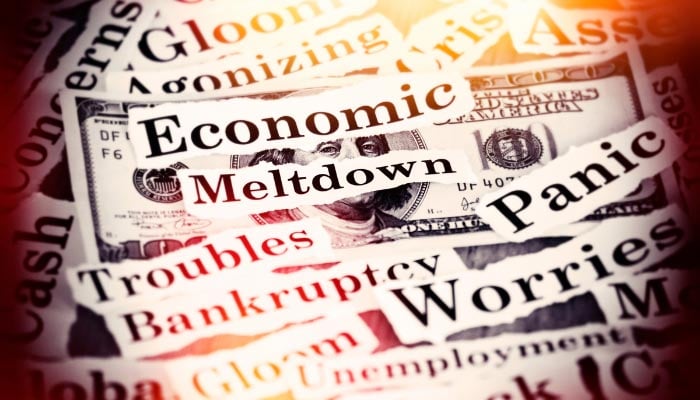Recession risks flare up for Pakistan amid political, economic crises
Bloomberg survey shows probability of economy slipping into recession stands at 70%
Pakistan faces the renewed risk of recession amid a deepening political and economic crisis and a delay in the revival of the International Monetary Fund’s (IMF) bailout programme.
Bloomberg survey showed that the probability of the economy slipping into recession stands at 70%, according to the median forecast of 27 economists.
In the last few months, the cash-strapped nation has failed to meet several deadlines to secure funds to stave off a default, which has raised concerns that Pakistan might have to pause debt repayments.
In order to woo the IMF, Prime Minister Shehbaz Sharif-led government have raised taxes, cut energy subsidies, and hiked interest rates to a 25-year high to tamp down prices, but some issues are yet to be resolved.
The inability of successive governments to meet IMF’s prescriptions is leading to a delay, said Luqman Nadeem, general partner at FlatRock Associates.
The current political crisis could make the “IMF more reluctant to disburse any funds,” he said. “There is no continuity of policies regardless of who is in power, which is a big red flag for the lender as well as any friendly countries.”
The political crisis deepened this week after clashes erupted as the police tried to arrest former prime minister and Pakistan Tehreek-e-Insaf (PTI) Chairman Imran Khan, who is demanding early elections since his ouster via a no-confidence motion in April last year.
Pakistan needs funds to revive its $350 billion economy, ease widespread shortages and rebuild its foreign currency reserves. The nation’s dollar stockpile has fallen to less than a month’s worth of imports, restricting its ability to fund overseas purchases, stranding thousands of containers of supplies at ports, forcing plant shutdowns and putting tens of thousands of jobs at risk.
Economist Ankur Shukla believes that Pakistan’s default risk is creeping even higher. Bond spreads are widening — while the IMF deliberates on whether to resume aid. “We think it eventually will, but the wait is excruciating. Meantime, dollar shortages are choking off growth,” he said.
“Severe demand destruction is taking hold”, said Suleman Rafiq Maniya, head of the advisory at Vector Securities Pvt. Companies are operating at less than 50% capacity amid a dollar crunch and high inflation is reducing disposable incomes, further dampening demand, he said.
Pakistan is scheduled to release its annual gross domestic product report in May. Bloomberg Economics sees the economy contracting 2.2% in the financial year ending June, compared with a 6% expansion in the previous year.
“The government policies to address these challenges have been limited in their effectiveness,” said Ehtesham Khan, chief executive officer at EK Global Capital, “A decline in GDP growth, high unemployment rates, reduced consumer spending, decreased business investment” all point toward an economic downturn, he said.
-
Bitcoin plummets toward $60,000 as investors dump risky bets
-
Bitcoin crashes below $63K as regulatory pressure and market fears grow
-
Bitwise Crypto Industry innovators ETF: What investors should do in 2026?
-
Nintendo shares slide again as momentum fears grow
-
Gold, silver prices fallen sharply; What’s driving the drop?
-
Gold’s record climb: Experts question if its safety is ‘overstated’
-
Dubai unveils plans to construct street built with real gold
-
Netflix slams Paramount’s bid: 'Doesn't pass sniff test’ as Warner battle escalates












